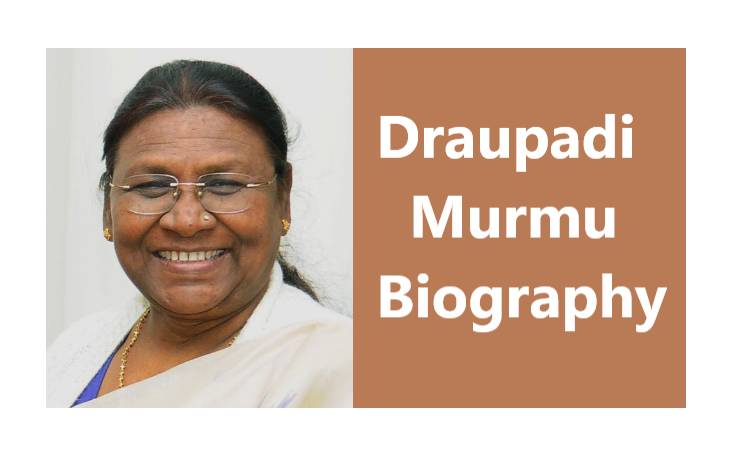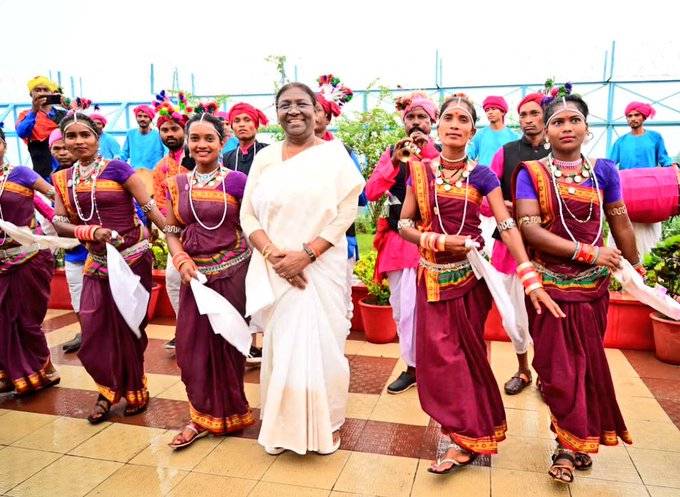Who is Draupadi Murmu, Maybe the next leader of India?

This week, 4,800 members of India’s regional parliament and parliament cast ballots to choose the country’s 15th president.
With almost 60% of the vote predicted to go in Draupadi Murmu’s favor, she has a significant lead against Yashwant Sinha, the nominee of the opposition.
The BJP, led by Prime Minister Narendra Modi, has enough seats in both the national and state legislatures to support its preferred candidate. Political observers predict that Murmu will likely support other regional parties in state assembly.
According to the Indian Constitution, the prime minister and council of ministers—elected officials who represent the people—have the real power while the president serves only as the nominal head of state.

Draupadi Murmu Biography
India’s first Adivasi/tribal woman is now going to become the 15th President. NDA sprung all people by picking up Draupadi Murmu from the tribal community & made historical records. Murmu was also first tribal woman to become governor in Jharkhand state also BJD support her in the election as she came from Orissa state & a great leadership under her administration in governance.
| Full Name | Draupadi Murmu |
| Father Name | BIRANCHI NARAYAN TUD |
| Husband Name | Shyam Charan Murmu |
| Profession | Political Leader |
| Political Party | BJP |
| Age | 64 |
| Weight | 74 kilo |
| Height | 5 ft 4 inch |
| Birth Place | Baidaposi, Odisha |
| Birth Date | June 20, 1958 |
| Religion | Hindu |
| Caste | ST |
| Children | Three |
| Serving As | Jharkhand Governor. |
Draupadi Murmu Family
Despite being born in a backward area & in a tribal family, her family member was educated & holds a good position in the village. Her father & grandfather were village heads and holds a good position in the village. he was married to Shyam Charan Murmu having 2 sons & 1 daughter. But her both son died later in life.
A long career in politics
Murmu is an Odisha Santhal, a tribe that depends heavily on the forest. The tribe is the third-largest scheduled tribe in India after the Bhils and Gonds and is dispersed over four states.
Scheduled tribal members in India number around 84 million and come from 698 different communities. They still experience social, economic, and cultural marginalisation. Tribes often live in impoverished settlements with little access to healthcare and education.
“Her victory will go down in history. We need to get past the symbolism and cynicism that have dominated the story, in my opinion. For the nation’s tribal people, this is fortunate “A political science student named Kiran Kumar Soren spoke to DW
Murmu began his career as a teacher before transitioning into state politics. On a BJP ticket, she served as a legislator twice, in 2000 and 2009.
Murmu was chosen in 2015 to serve as Jharkhand’s first female governor, a role she will occupy through July 2021.
As governor, Murmu oversaw the reinstatement of two contentious laws, the Chhotanagpur Tenancy (CNT) Act and the Santhal Pargana Tenancy (SPT) Act, in response to major tribal unrest after the state attempted to curtail their land rights.
Although scheduled tribes are given representation in Parliament and assemblies based on their demographic proportion, social and economic marginalisation of these groups continues to be a problem.
Some perceive Murmu’s promotion to the position of a prospective president as a victory for tribal political ambitions and a turning point for the tribe, which has long been ignored and taken advantage of by many governments.
“She was not chosen symbolically, in my opinion. It is a struggle for political legitimacy within the national political system and the mainstream, “According to Ritambhara Hebbar, a professor at the Tata Institute of Social Sciences’ Centre for Study of Developing Societies in Mumbai.
Hebbar continued, “Her elevation is the embodiment of a battle, and she has worked her way up — a reflection of her political acuteness.
Can Murmur give India’s tribes more power?
Some political analysts question if Murmu’s succession will inevitably result in any significant changes to the lives of common tribe members.
Previous presidents from marginalised and minority origins seldom ever spoke out for the issues that affected other members of their communities.
Ram Nath Kovind, the current president of India and the country’s second Dalit leader, has come under fire for failing to bring up the subject of crimes against Dalits, who are regarded as belonging to the “lowest” caste in Hinduism’s intricate caste system.